Higher Education Presidents' Council Chair
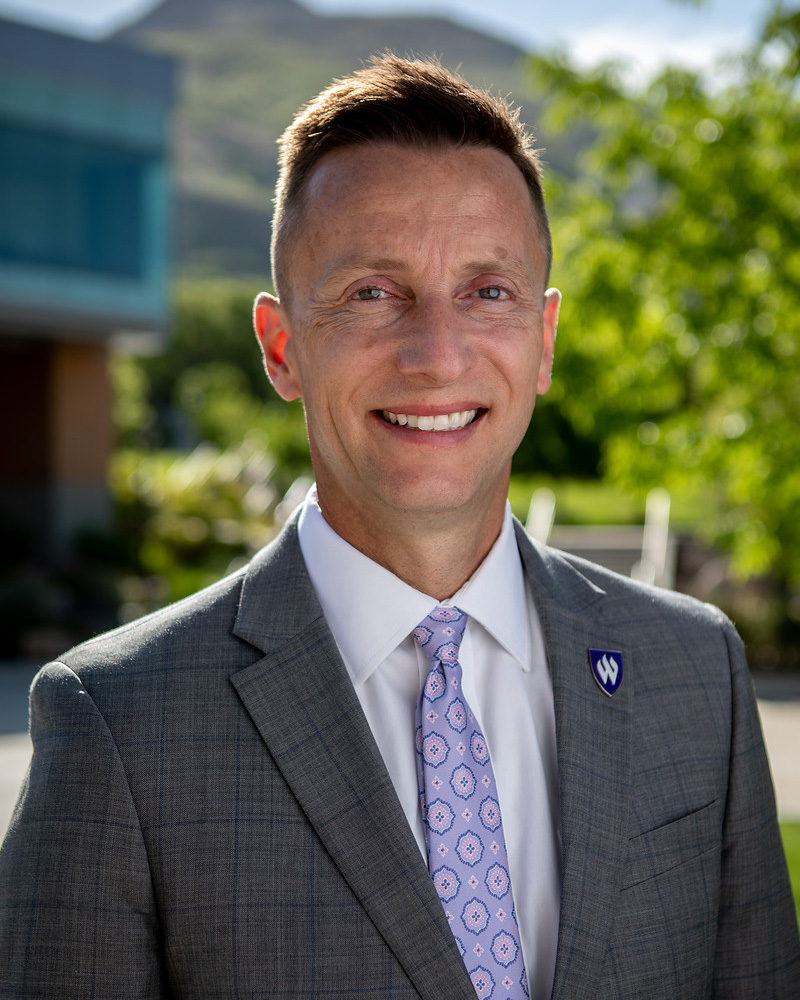
Brad Mortensen
President of Weber State University
Dr. Brad L. Mortensen became the 13th president of Weber State University on January 1, 2019 with a call to action for the Weber State family to “Become louder and prouder about Weber State University.” Two recent 2021 rankings — #19 in the nation by AffordableSchools.net for affordability and outcomes and #2 “Best for Vets” by Military Times — demonstrate some of the Weber State’s great, Great, GREAT successes.
Read More
While serving as president, Brad has been particularly proud to celebrate numerous major accomplishments with campus colleagues. A few highlights include:
- Holding commencement ceremonies for the two biggest graduating classes in Weber State history during the COVID-19 pandemic.
- Establishing a new strategic plan “Weber State Amplified: A 5-Year Plan for Growth,” during the COVID-19 pandemic.
- Expanding numerous facilities on both the Ogden and Davis campuses.
- Hosting the 2019 National Dual Mission Institution Summit to highlight Weber State’s 60-year history as an open enrollment regional university that serves community college and associate’s degree needs of our region.
- Facilitating expanded partnerships with Ogden-Weber and Davis technical colleges, the Rocky Mountain Center for Occupational & Environmental Health, Falcon Hill Aerospace Research Park, and the Northern Utah Economic Alliance.
Brad joined Weber State in 2004 as assistant vice president for auxiliary and support services, and served as vice president of university advancement from 2007 through 2018. As vice president, he led efforts in alumni relations, economic development, government relations, marketing and communications, and development, including the successful Dream 125: Campaign for Weber State comprehensive fundraising effort which concluded in 2016 after raising $164 million from private sources.
Beyond the university, Brad has been active with several Northern Utah organizations. He served as chair for the Ogden-Weber Chamber of Commerce and United Way of Northern Utah and was recognized by Utah Business as a 2018 CXO of the Year.
Prior to coming to Weber State, his professional endeavors included the Utah System of Higher Education, Utah governor’s office, Arizona legislature and two policy fellowships.
Brad earned an associate’s degree from Ricks College, bachelor’s degree from Utah State University, a master’s degree from Syracuse University and a doctoral degree from the University of Utah.
Originally from Lyman, Idaho, Brad and his wife Camille (a 2021 WSU alumna) are the parents of four children, including one who graduated from Weber State, and two others who are currently attending as traditional and early college students.
Leadership Team
The Chair is joined by other current sitting and emeritus presidents.
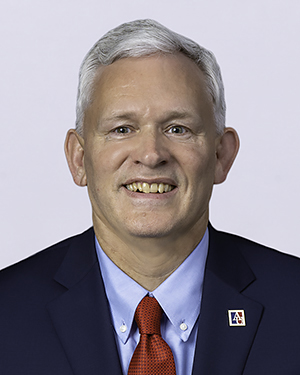
Jonathan Alger
President of American University
Jonathan R. Alger is American University’s 16th president.
President Alger is an experienced and visionary higher education leader who spent the last 12 years as president of James Madison University (JMU).
Read More
Under his leadership, JMU created and implemented a bold and visionary strategic plan focused on engaged learning, community engagement, and civic engagement, and developed many new initiatives such as the Valley Scholars Program for first-generation students, the comprehensive and highly successful Unleashed fundraising campaign, and the comprehensive Task Force on Racial Equity. President Alger also led JMU to achieve the R2 national research university designation and helped to grow the university’s external research funding by 92 percent from 2019 to 2023.
President Alger is a nationally recognized scholar and speaker on higher education policy and law, who has published numerous articles for scholarly journals and publications such as The Journal of College and University Law and The Law of Higher Education.
A national leader in the field of civic engagement in higher education, Alger received the ALL IN Campus Democracy Challenge Standout Campus President Award in 2019 and is past chair of that organization’s Presidents Council. He co-taught a leadership seminar in JMU’s Honors College and previously taught graduate and undergraduate courses at Rutgers University and the University of Michigan in law, higher education, public policy, and diversity.
President Alger currently serves as vice chair of the national board of directors for the American Association of Colleges and Universities, as chair of the Association of Governing Boards’ Council of Presidents, and on the Knight Commission on Intercollegiate Athletics. He also is a member of the Council on Competitiveness, Council on Foreign Relations, and Institute of Citizens and Scholars’ College Presidents for Civic Preparedness. He is past board chair of Campus Compact and the National Association of College and University Attorneys and has served in many other higher education board and national leadership roles.
President Alger previously served as senior vice president and general counsel at Rutgers University, and as assistant general counsel at the University of Michigan, where he played a key leadership role in the university’s efforts in two important Supreme Court cases on diversity and admissions and coordinated one of the largest amicus brief coalitions in Supreme Court history. Earlier in his career he worked for the American Association of University Professors and the US Department of Education’s Office for Civil Rights.
President Alger earned his bachelor of arts with high honors and Phi Beta Kappa from Swarthmore College, majoring in political science with a public policy concentration and a minor in history and his juris doctor with honors from Harvard Law School.
President Alger was born and raised outside Rochester, New York. He and his wife, Mary Ann, have a daughter named Eleanor, who holds degrees from Miami University (Ohio) and the Savannah College of Art and Design. President
Alger has sung with acclaimed choral groups that have toured internationally, made professional recordings, and performed on national television. His other interests include travel, history, tennis, hiking, and coin collecting.

Roslyn Clark Artis
President of Benedict College
Dr. Artis was unanimously appointed by the Board of Trustees as the 14th and first woman President of Benedict College on June 30, 2017. Previously, Dr. Artis served as the 13th and first woman President of Florida Memorial University in Miami Gardens, Florida.
Read More
Intentional, professional, and thoroughly committed to the proliferation and transformation of colleges and universities that serve underrepresented men and women of color, Dr. Artis’ leadership has been recognized locally and nationally. In 2018, she was named “Female HBCU President of the Year” by HBCU Digest. In 2019, Dr. Artis was named to Diverse Issues in Higher Education’s “Top 35 Leading Women in Higher Education.” That same year, Benedict College was awarded the American Council on Education (ACE) Fidelity Investments Award for Institutional Transformation and recognized as the HBCU of the Year by HBCU Digest. In 2020, Dr. Artis was named “President of the Year” by Higher Ed Dive for her leadership in navigating the unprecedented challenges of 2020. In 2021, President Artis was appointed to the National Advisory Committee on Institutional Quality and Integrity (NACIQI). NACIQI advises the U.S. Secretary of Education on matters concerning accreditation, the Secretary’s recognition process for accrediting agencies, and institutional eligibility for federal student aid, through the Committee’s public meetings. Most recently, in 2022, President Artis was named one of Columbia Business Monthly’s 50 Most Influential.
Dr. Artis is the Chair of the Presidents’ Advisory Board for Title III Administrators, is a member of the Educational Testing Service (ETS) Presidents’ Advisory Council, and is a Member of the Board of Directors for the American Council on Education (ACE). She also serves as an Advisory Board Member for the University of South Carolina’s National Resource Center for The First-Year Experience and Students in Transition and is a Board Member for the Forum on Education Abroad. She is Vice-Chair for the “Southern Regional Education Board (SREB) HBCU/MSI Collaboration” and has been named an “Equity in Energy Ambassador” for the United States Department of Energy. She previously served on the Education Advisory Committee to the Secretary of the Department of Homeland Security, Jeh Johnson, during the Obama Administration.
Artis has been a trailblazer for much of her life. A prolific speaker, critical thinker and fierce advocate for educational access. Dr. Artis is frequently engaged as a mentor, lecturer, and catalyst for strategic transformation. She is a widely respected innovator and thought leader on issues of higher education, specifically as it relates to underserved and vulnerable populations, having published countless articles and editorials on topics related to higher education equity and inclusion as well as the complexities associated with leading minority serving institutions. Artis is the founding Co-Chair for the Historically Black College and University Annual Sustainability Summit, which is in its 5th year. She has received more than 300 awards and recognitions locally and nationally for her work.
Dr. Artis is a graduate of Vanderbilt University, where she earned a Doctorate in Higher Education Leadership and Policy. She also holds a Juris Doctorate from West Virginia University College of Law, and her Bachelor of Arts degree in Political science from sister HBCU, West Virginia State University. The consummate professional, Dr. Artis also holds a Certificate of fundraising Management from Indiana University and a Certificate of Mastery in Prior Learning Assessment from DePaul University.
President Alger is a nationally recognized scholar and speaker on higher education policy and law, who has published numerous articles for scholarly journals and publications such as The Journal of College and University Law and The Law of Higher Education.
A national leader in the field of civic engagement in higher education, Alger received the ALL IN Campus Democracy Challenge Standout Campus President Award in 2019 and is past chair of that organization’s Presidents Council. He co-taught a leadership seminar in JMU’s Honors College and previously taught graduate and undergraduate courses at Rutgers University and the University of Michigan in law, higher education, public policy, and diversity.
President Alger currently serves as vice chair of the national board of directors for the American Association of Colleges and Universities, as chair of the Association of Governing Boards’ Council of Presidents, and on the Knight Commission on Intercollegiate Athletics. He also is a member of the Council on Competitiveness, Council on Foreign Relations, and Institute of Citizens and Scholars’ College Presidents for Civic Preparedness. He is past board chair of Campus Compact and the National Association of College and University Attorneys and has served in many other higher education board and national leadership roles.
President Alger previously served as senior vice president and general counsel at Rutgers University, and as assistant general counsel at the University of Michigan, where he played a key leadership role in the university’s efforts in two important Supreme Court cases on diversity and admissions and coordinated one of the largest amicus brief coalitions in Supreme Court history. Earlier in his career he worked for the American Association of University Professors and the US Department of Education’s Office for Civil Rights.
President Alger earned his bachelor of arts with high honors and Phi Beta Kappa from Swarthmore College, majoring in political science with a public policy concentration and a minor in history and his juris doctor with honors from Harvard Law School.
President Alger was born and raised outside Rochester, New York. He and his wife, Mary Ann, have a daughter named Eleanor, who holds degrees from Miami University (Ohio) and the Savannah College of Art and Design. President
Alger has sung with acclaimed choral groups that have toured internationally, made professional recordings, and performed on national television. His other interests include travel, history, tennis, hiking, and coin collecting.
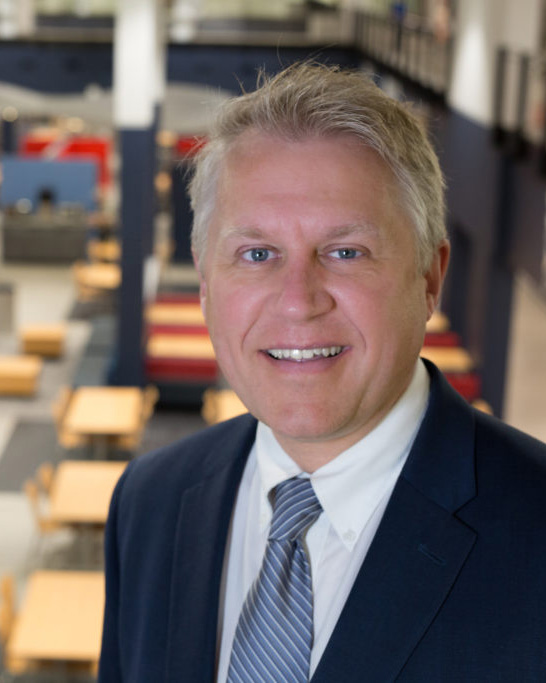
Michael D. Berndt
President of Inver Hills Community College
Michael Berndt has served as the president of Inver Hills Community College and Dakota County Technical College since 2018. Before that, he served as Vice President of Planning and Institutional Effectiveness at Normandale Community College and Vice President of Academic Affairs at Century College. He also served several years as faculty in English at Normandale Community College, specializing in civics-based writing instruction.
Read More
In 2007, he had co-authored Composing a Civic Life (Pearson) with Dr. Amy Muse, a reader-rhetoric that encouraged the development of civics skills across the curriculum. He has a Masters in English from Southern Illinois University at Carbondale.
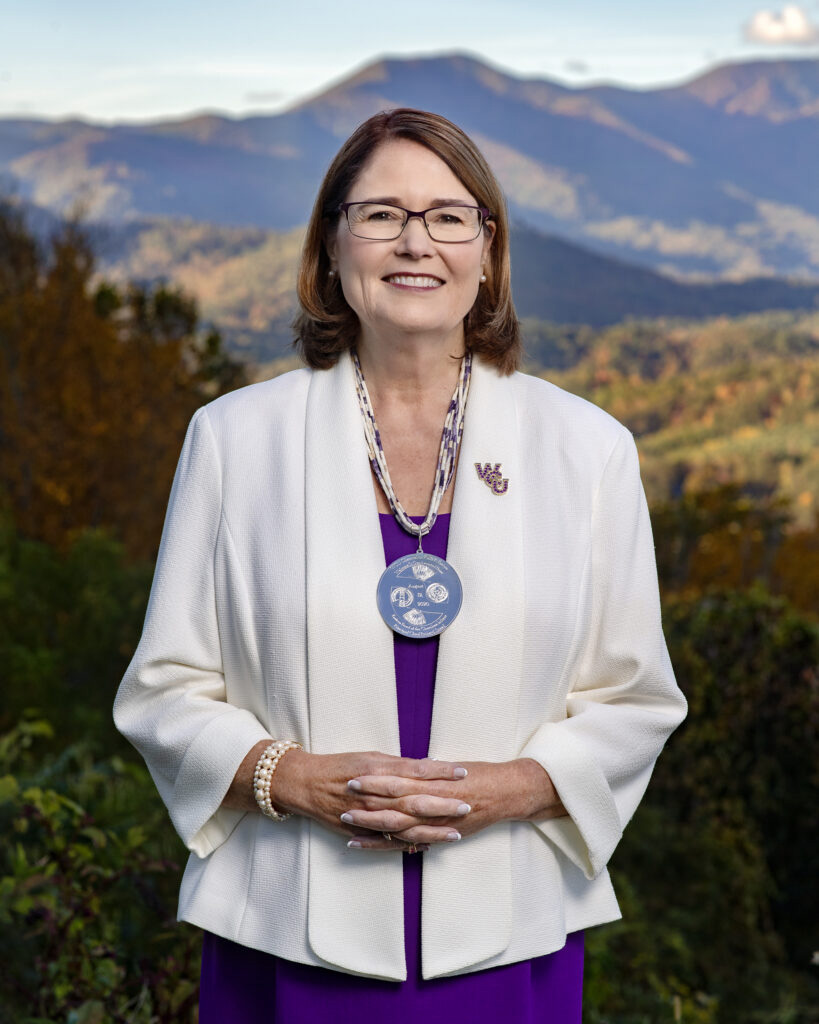
Kelli R. Brown
Chancellor of Western Carolina University
Kelli R. Brown is Chancellor of Western Carolina University, a regional comprehensive university that serves more than 11,000 students with a wide range of bachelor’s degrees across the spectrum of arts and sciences disciplines and professional programs in business, education, health care, and engineering; more than 30 master’s degree and certificate programs; and five professional doctoral programs.
Read More
Dr. Brown took office as the 12th Chancellor of WCU in July 2019, becoming the University’s first permanent woman chancellor. She previously served as provost and senior vice president for academic affairs at Georgia College & State University. In July 2016, Chancellor Brown was appointed interim president of Valdosta State University, a regional comprehensive university in southern Georgia. She served in that capacity until a permanent president took office in January 2017, after which she then returned to her position at Georgia College. In addition to her leadership at Georgia College, she has taught undergraduate and graduate students and has served in academic leadership roles at the University of Florida, University of South Florida, Illinois State University, and Western Illinois University.
Since her arrival, Chancellor Brown has highlighted several priorities: an institutional emphasis on quality and excellence; a commitment to diversity and inclusive excellence; and a focus on the University’s role as an engine of economic development for its communities. Under Chancellor Brown’s stewardship, WCU continues to capitalize on the opportunity to be a thought leader regarding how regionally engaged universities can maintain a student-centered focus, with high levels of teaching innovation.
She serves on the Board of Circles of Jackson County (ending the cycle of poverty), and is the Board Chair for North Carolina Campus Compact, a collaborative network of colleges and universities committed to educating students for civic and social responsibility, partnering with communities for positive change, and strengthening democracy.
Chancellor Brown earned her doctorate in education from Southern Illinois University at Carbondale; a Master of Science and Education in public health degree and Bachelor of Science degree in public health services, both from the University of Toledo; and an Associate in Applied Sciences degree in dental hygiene from Michael J. Owens Technical College in Toledo, Ohio.
She is originally from the Midwest, and she and her husband of 33 years, Dennis, live in Cullowhee.
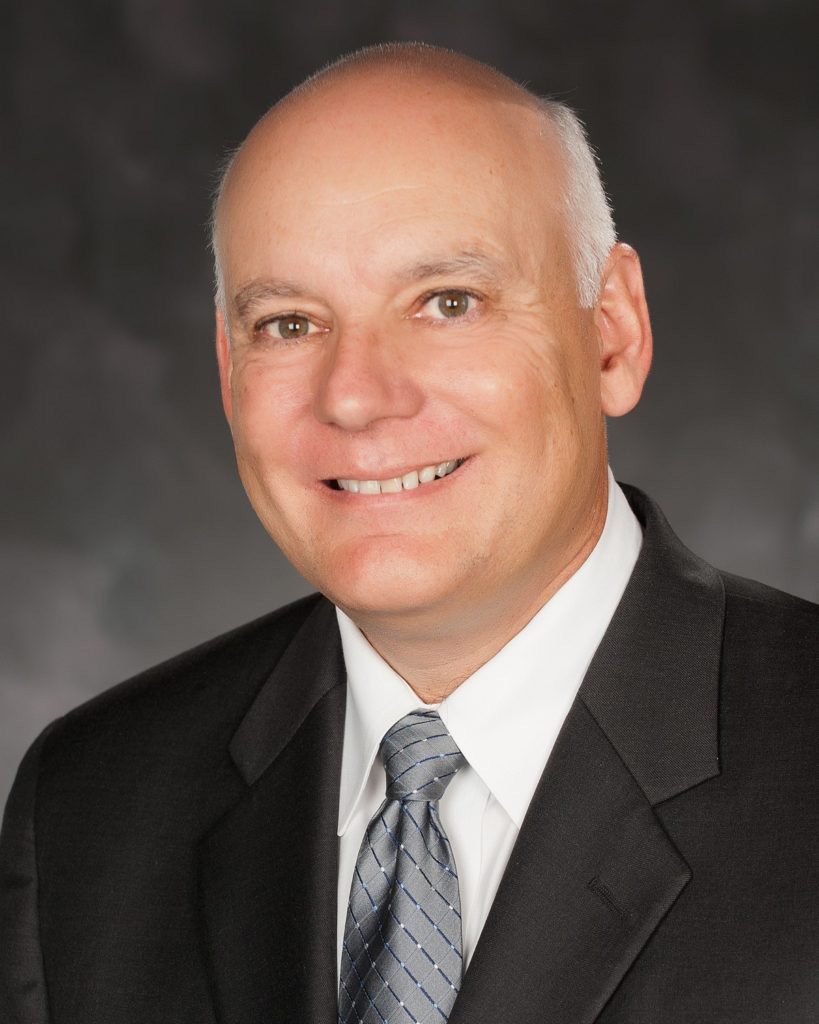
Bill Coppola
President Emeritus of Tarrant County College’s Southeast Campus
Bill Coppola currently serves as President of Tarrant County College’s Southeast campus since 2012.
Prior to this appointment, he served as the Executive Director of Academic Partnerships and Initiatives as well as Vice President of Instruction and Chief Academic Officer of Lone Star College–Kingwood, a position he held since 2006.
Read More
Dr. Coppola received his Ph.D. in Higher Education Administration and M.Ed. degree from the University of North Texas, and his B.A. in Telecommunications from Michigan State University. His contributions to the community include, but not limited to, service on Arlington and Mansfield Chamber of Commerce Boards, Campus Compact – Vice-Chair, City of Arlington Transportation Committee, Higher Education Research & Development Institute, HERDI South Board, Methodist Mansfield Hospital Community Advisory Board, Phi Theta Kappa National Advisory Board and Texas Presidential Liaison, Tarrant County Homeless Coalition, Continuum of Care Board of Directors, and Tarrant To & Through (T3) Partnership – Board member.
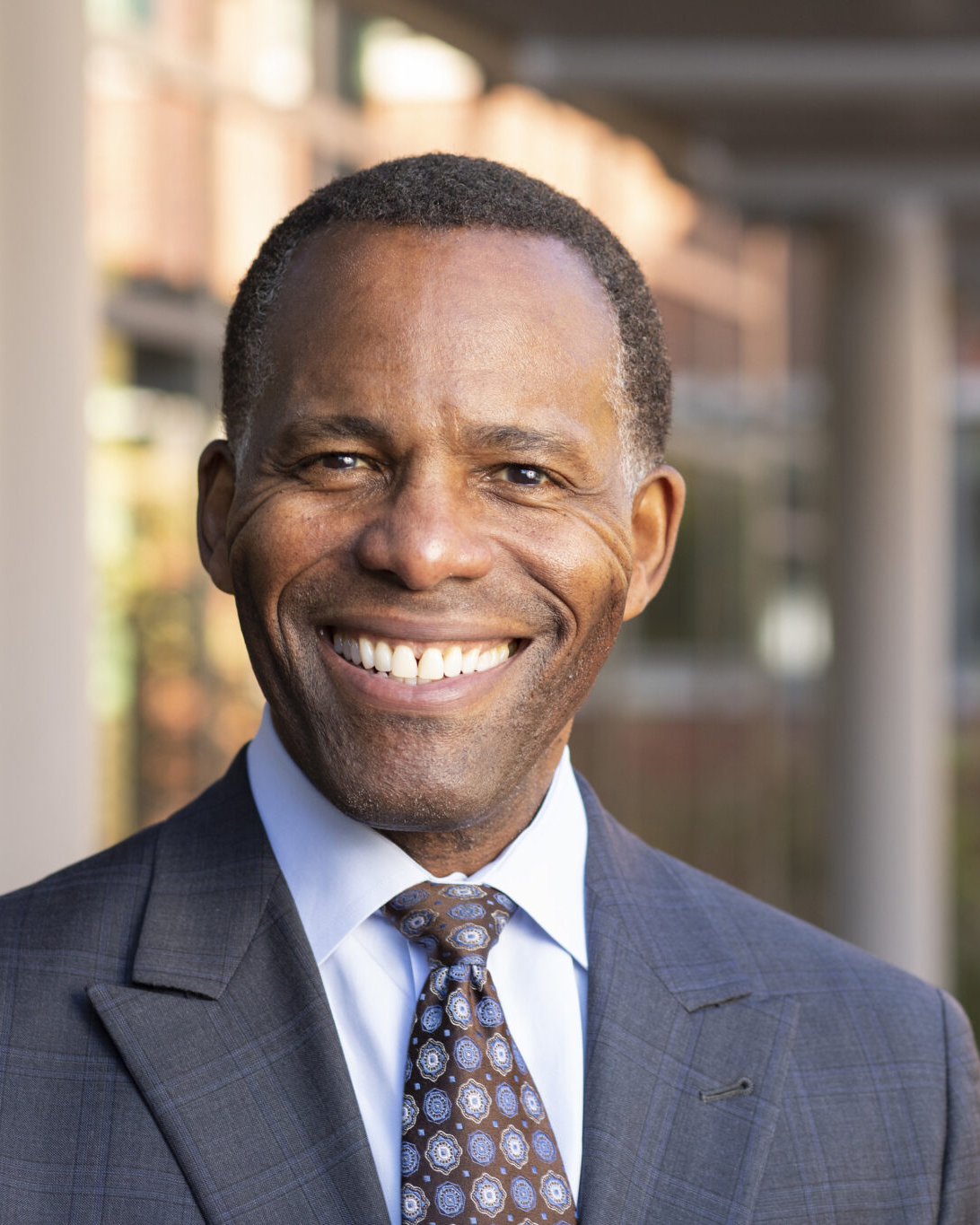
Isiaah Crawford
President of Puget Sound
A distinguished scholar, teacher, and college administrator, Crawford became president of University of Puget Sound in 2016. Crawford’s academic work and achievements as a senior administrator are closely aligned with the values and aspirations of Puget Sound, and with the key areas of challenge and opportunity facing higher education today.
Read More
Crawford came to Puget Sound following service as provost and chief academic officer of Seattle University (2008–16), where he directed the Division of Academic Affairs and oversaw the university’s schools and colleges, libraries, enrollment, information technology, institutional research, and offices supporting student academic achievement, faculty affairs, and global engagement. From 2004 to 2008, he was dean of the College of Arts and Sciences at Loyola University Chicago, where he joined the faculty of the Department of Psychology in 1987.
Crawford earned a bachelor’s degree in psychology from St. Louis University, and master’s and doctoral degrees in clinical psychology from DePaul University. He is an accomplished clinician and well-published scholar in the areas of health promotion, human sexuality and the training of mental health professionals, and the recipient of numerous national awards, including three from the American Psychological Association.
Crawford serves on the board of directors for the American Council on Education, Independent Colleges of Washington, and the Northwest Conference, as well as Providence St. Joseph Health and Providence Health Plan.
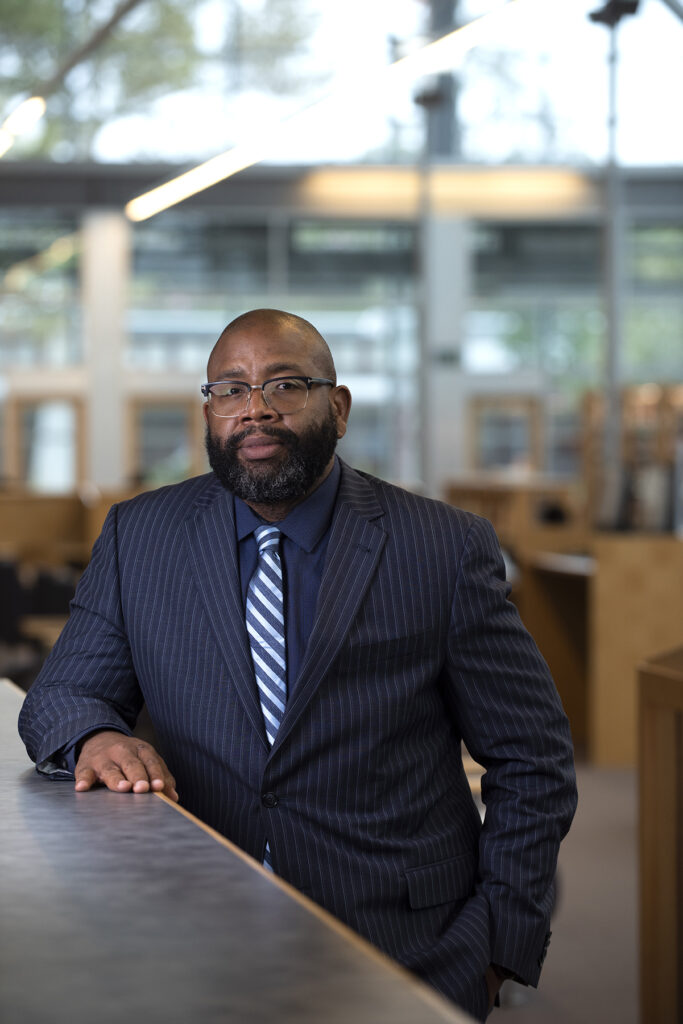
Keith Curry
President/CEO of Compton College
Dr. Keith Curry is the President of the Compton College and CEO of the Compton Community College District. Dr. Curry is responsible for overseeing all departments and functions of Compton College and the District and serves as secretary for the CCCD Board of Trustees. He brings an abundance of energy and innovative ideas to Compton College, along with a wealth of experience as a postsecondary education administrator.
Read More
Dr. Curry is an active member of the Foundation for Compton Community College District, the Statewide Association of Community Colleges (SWACC), and the President’s Roundtable. He has participated in Accrediting Commission for Community and Junior Colleges (ACCJC) Visiting Teams, serving as Accreditation Team Chair four times since fall 2017.
Dr. Curry co-founded and chairs Black Student Success Week. He currently serves as chair of both the National Panel on Black Student Enrollment and the Black Student Enrollment Expert Advisory Committee. He is also a member of the California Alliance for Open Education Steering Committee and the University of Southern California Racial Equity in Guided Pathways Commission Taskforce.
His recent honors include 2024 Diverse Issues in Higher Education – Diverse Champion Award,
2023 California Conference for Equality and Justice Humanitarian Award, 2022 California Community Colleges Chief Instructional Officers Equity Champion Award, and 2022 California Legislative Black Caucus Unsung Hero Recognition (35th California Senate District).
In June 2020, Dr. Curry was invited by Governor Newsom’s Senior Policy Advisor for Higher Education Lande Ajose to serve on the California Higher Education Recovery with Equity Task Force.
At the 2019 Community College League of California Annual Conference, Dr. Curry was honored as one of three 2019 Champions of Equity by the Campaign for College Opportunity and the National Association of Latino Elected and Appointed Officials Educational Fund. The award honors those who prioritize student-centered policies that produce equitable outcomes and expand opportunities for Californians.
In 2018, Dr. Curry received the Harry Buttimer Distinguished Administrator Award. The Association of California Community College Administrators bestows the award to administrators who demonstrate integrity, principle, compassion, strength in leadership, and who have made significant contributions to the college district and community.
Since spring 2021, Dr. Curry has served as a Distinguished Research Fellow/ Adjunct Faculty at the California State University, Los Angeles Charter College of Education.
Dr. Curry earned his doctorate in educational leadership from the University of California, Irvine, and a bachelor’s degree in American studies from the University of California, Santa Cruz.
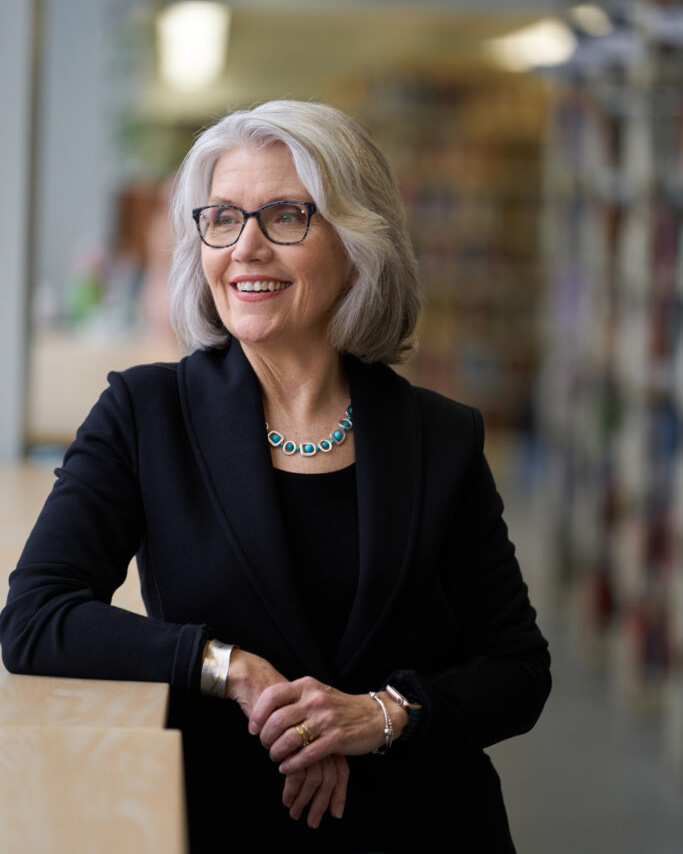
Mary Grant
President of Massachusetts College of Art and Design
Dr. Mary K. Grant is a nationally recognized leader in public higher education with more than 30
years of experience. Known for her commitment to access, equity, and the power of creative
education, she has spent her career expanding opportunities for students and strengthening the
role of higher education in building stronger communities.
Read More
She currently serves as President of Massachusetts College of Art and Design—the nation’s only independent public college of art and design—where she brings a clear vision, deep care, and a lifelong belief in the value of creativity.
A dedicated advocate for public colleges and universities, she has also led the University of North Carolina Asheville as Chancellor and served more than a decade as President of her alma mater, the Massachusetts College of Liberal Arts (MCLA), advancing civic learning, student success, and institutional growth. President Grant also served as chair of the Board for the Council of Public Liberal Arts Colleges (COPLAC) Throughout her career, Dr. Grant has emphasized that education is not only about earning a degree—it’s about discovering purpose and preparing for a meaningful life. She is a strong voice for public service, civic dialogue, and the role of education in shaping the next generation of citizens and leaders.
Beyond campus, she contributes her leadership to several regional and national organizations. She is Vice Chair of the Board of the Norman Rockwell Museum, Chair of the National Campus Compact Board, Secretary of the Association of Independent Colleges of Art and Design, and serves on advisory and nominating panels for EdVestors, Boston Public Schools, and the Greater Boston Chamber of Commerce. She’s also a regular guest on GBH’s The Culture Show with Jared Bowen.
Her previous roles include President and CEO of the Edward M. Kennedy Institute for the United States Senate and Senior Administrative Fellow for Civics and Social Justice at the Martin Richard Institute at Bridgewater State University. In every role, she’s worked alongside students, faculty, and community members to lead with creativity, care, and purpose. A first-generation college graduate, Dr. Grant understands firsthand the impact of higher education—and continues to champion its promise every day.
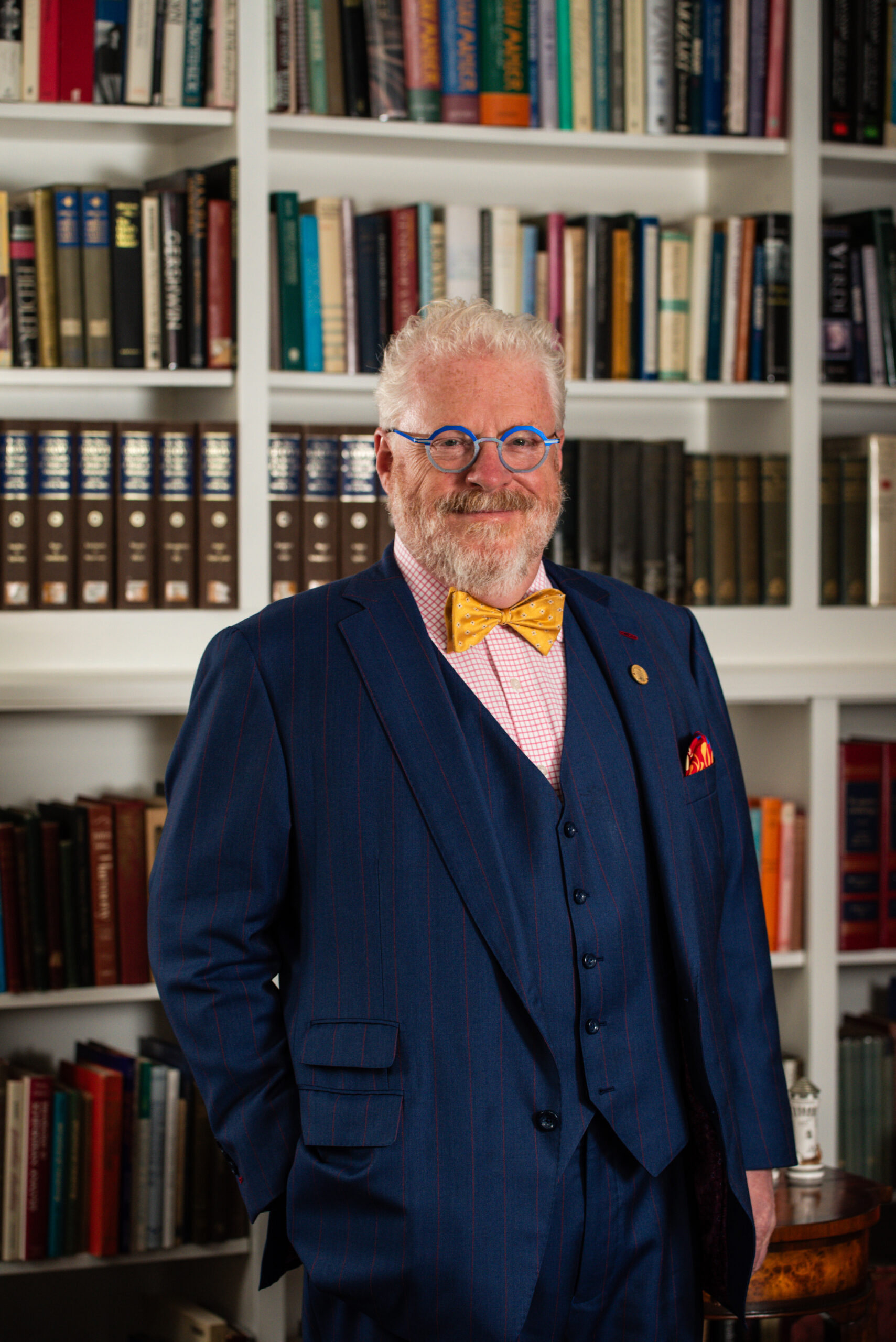
Jonathan d. Green
President of Susquehanna University
Jonathan Green has been president of Susquehanna University since 2017.
During his tenure, Susquehanna University has joined the American Talent Initiative, successfully completed the university’s largest capital campaign, added a TRiO program, completed the largest solar array of any campus in PA, secured support from Act 101, Title III, and the Department of Justice, and greatly expanded the University’s Freshwater Research Institute, including a partnership with the Chesapeake Conservancy.
Read More
Green is chair of the board of the Annapolis Group, chair emeritus of the Association of Independent Colleges and Universities of Pennsylvania, and serves on the boards of the Pennsylvania Higher Education Assistance Agency and the National Association of Independent Colleges and Universities.
Since arriving at Susquehanna, he has twice been named to the City & State Pennsylvania’s Higher Education Power 100, and he has received numerous awards for his higher education blog.
Green was previously Provost and Dean of the Faculty at Illinois Wesleyan University where he was named the first recipient of the Outstanding Advisor Award, and Dean of the College and Vice President for Academic Affairs at Sweet Briar College where he received the Excellence in Teaching Award.
He earned a B.Mus. and received an Outstanding Alumnus Award from SUNY Fredonia. He holds a M.M. degree from UMass Amherst where he was an Ornest Fellow, and a D.M.A. in conducting from UNC-Greensboro where he was a University Excellence Fellow and has since been named a Distinguished Alumnus of the College of Fine Arts.
Green is an award-winning composer of over 160 musical works and the author of eight music-reference books.
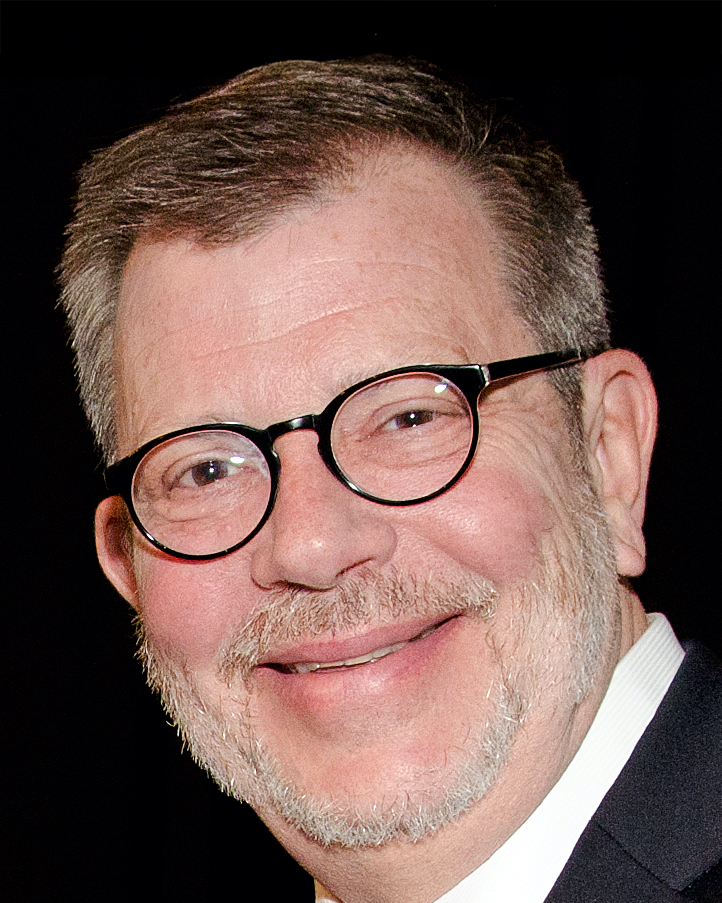
Eric Kaler
President of Case Western Reserve University
Eric W. Kaler became the president of Case Western Reserve University in 2021, having served as the 16th president of the University of Minnesota from 2011-2019. From 2007 to 2011, Kaler served as provost and senior vice president for academic affairs at Stony Brook University in Stony Brook, New York.
Read More
While at Stony Brook, he was also vice president for Brookhaven National Laboratory Affairs. Previously, he was dean of the University of Delaware’s College of Engineering and the Elizabeth Inez Kelley Professor of Chemical Engineering. He also taught at the University of Washington.
Kaler received his B.S. from California Institute of Technology and his Ph.D. in chemical engineering from the University of Minnesota.
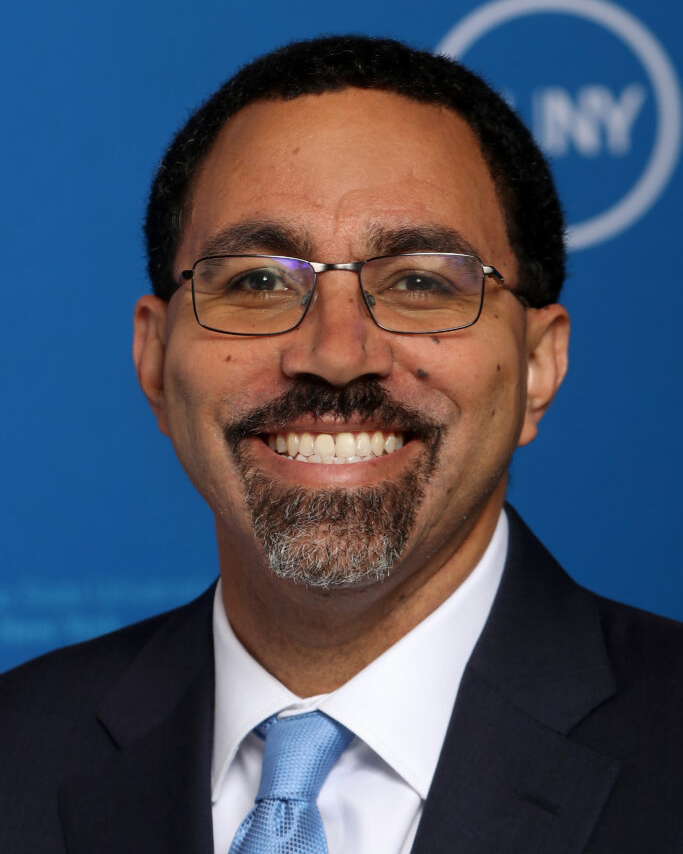
John King
Chancellor of the SUNY System
John B. King, Jr. is the 15th Chancellor of the State of New York (SUNY), the largest comprehensive system of public higher education in the United States.
Prior to his appointment as Chancellor, King served as the president of The Education Trust, a national civil rights nonprofit which seeks to identify and close opportunity and achievement gaps for students from preschool through college.
Read More
Chancellor King served in President Barack Obama’s cabinet as the 10th U.S. Secretary of Education. Upon tapping him to lead the U.S. Department of Education, President Obama called King “an exceptionally talented educator,” citing his commitment to “preparing every child for success,” and his lifelong dedication to public education as a teacher, principal, and leader of schools and school systems.
Before his appointment as Secretary of Education, Chancellor King fulfilled the duties of Deputy Secretary of Education, overseeing all policies and programs related to P-12 education, English learners, special education, and innovation.
His service in Washington, D.C., followed King’s tenure as New York State’s first African American and first Puerto Rican Education Commissioner, a role in which he oversaw all elementary and secondary schools, as well as public, independent, and proprietary colleges and universities, professional licensure, libraries, museums, and numerous other educational institutions.
Chancellor King holds a Bachelor of Arts in Government from Harvard University, a J.D. from Yale Law School, as well as both a Master of Arts in the Teaching of Social Studies and a Doctorate in Education from Teachers College at Columbia University.
You can follow Chancellor King on Twitter @JohnBKing.
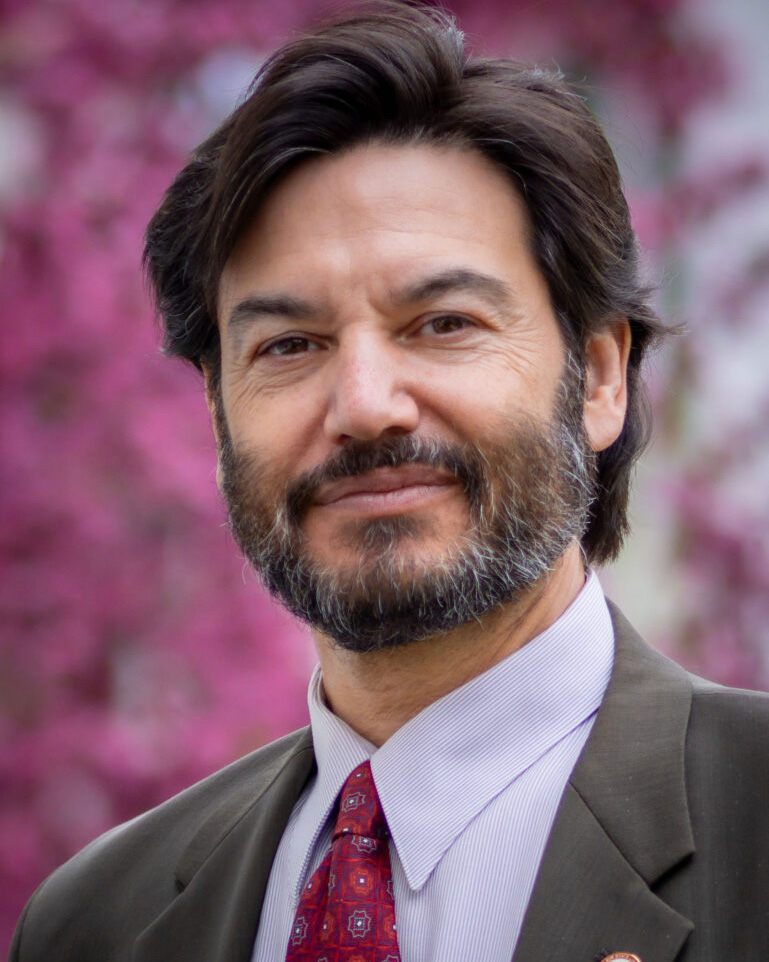
Jonathan Koppell
President of Montclair State University
Dr. Jonathan GS Koppell, Montclair State University’s ninth president, is a nationally recognized scholar of policy, organization and management with a reputation as a visionary leader in higher education emphasizing public service and solutions-oriented engagement in the community.
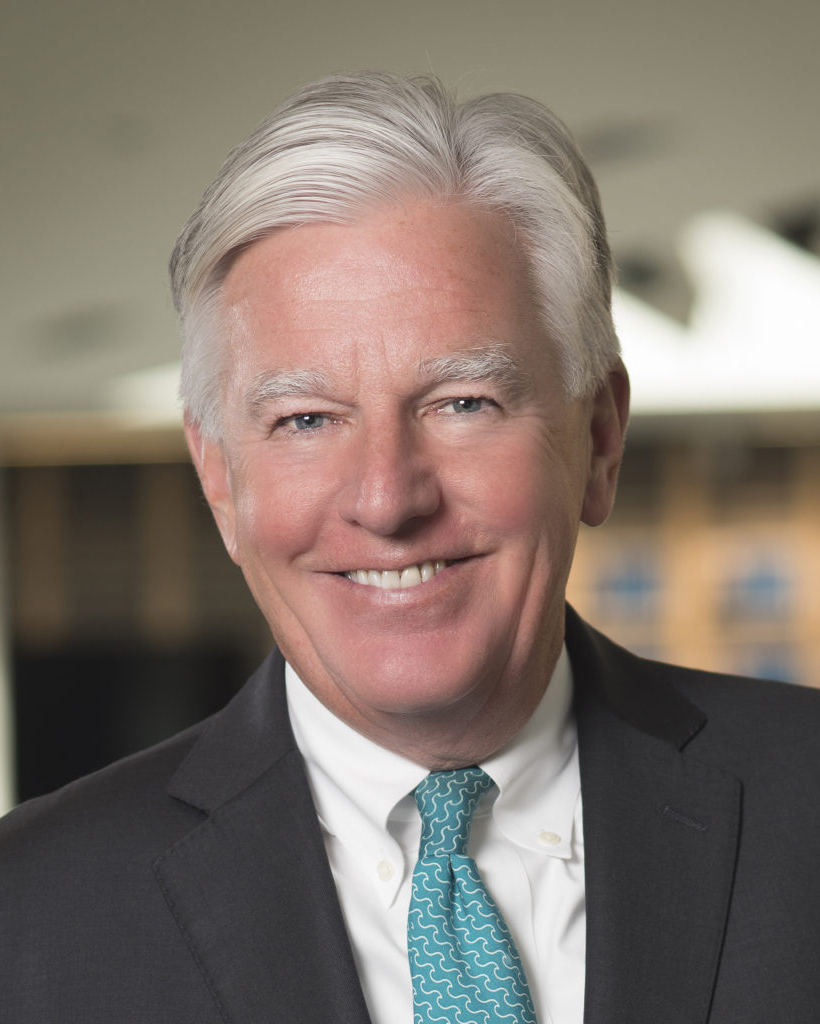
Marty Meehan
President of University of Massachusetts
Marty Meehan is the first undergraduate alumnus to lead the five-campus University of Massachusetts system. On July 1, 2015, he became the university’s 27th president after serving in the U.S. House of Representatives and as chancellor of UMass Lowell.
President Meehan has an abiding belief in public higher education’s power to transform lives. At his presidential inauguration on Nov. 12, 2015, Meehan pledged to fight for UMass, which he called “the most important institution in Massachusetts in the critical areas of social mobility and economic growth.”
Read More
Under Meehan’s leadership and with his support and advocacy, UMass has reached new heights and achieved historic milestones.
- Enrollment has risen to a record 75,000 students
- Annual research expenditures increased to nearly $700 million
- University-funded financial aid increased nearly 50 percent to $352 million.
- The university’s statewide annual economic impact has grown to a record $7.5 billion
- U.S. News & World Report now ranks all four UMass undergraduate campuses as top-tier national universities, making UMass one of the few university systems in the nation with that distinction.
- UMass Global, a non-profit affiliate of the university, was launched to expand online education opportunities for adult learners and build the talent pipeline.
- A system-wide ”efficiency and effectiveness” initiative has been accelerated and has now generated more than $100 million in savings.
- UMass Law, the only public law school in Massachusetts, achieved full ABA accreditation and its “ultimate” (2-year) bar pass rate has risen to 92 percent.
- The university recently received its three largest private donations in its history, totaling nearly $250 million.
- The university’s endowment grew to over $1.2 billion.
Born in Lowell, Meehan was one of seven children in a family where the importance of education was emphasized. After attending Lowell public schools, Meehan, a first-generation college student, graduated cum laude from UMass Lowell in 1978 with a degree in education and political science. He also earned a master’s degree in public administration from Suffolk University in 1981 and a juris doctor from Suffolk University Law School in 1986.
Meehan embraced a career in public service early in his life. He served as the deputy secretary of state for securities and corporations from 1986 to 1990. In 1991, he became first assistant district attorney for Middlesex County, managing a staff of more than 150, including 80 prosecutors, and establishing an innovative “priority prosecution” policy that targeted hardened criminals.
Seeing an opportunity to expand his public service commitment and to serve his nation, Meehan ran for U.S. Congress and was elected to represent the 5th Congressional District of Massachusetts in the U.S. House of Representatives in 1992.
He served on the House Armed Services and Judiciary committees and established a national reputation for his legislative leadership, winning praise for his efforts to protect the public from the health risks of tobacco.
Meehan was a central figure in campaign finance reform efforts and a major sponsor of the Bipartisan Campaign Reform Act of 2002, known as the McCain-Feingold Bill in the Senate and the Shays-Meehan Bill in the House.
After serving 14 years in Congress, Meehan was appointed chancellor of UMass Lowell in 2007. He made quality, diversity, access and affordability keystones of his vision to raise his alma mater’s reputation and impact. During his eight-year tenure, UMass Lowell’s enrollment grew by nearly 50 percent and the university climbed into the top tier of U.S. News & World Report’s best national universities rankings by improving its performance in every sphere of activity, including student success, fundraising and auxiliary revenue generation. His extraordinary achievements at UMass Lowell led to his appointment as president of the five-campus UMass system in 2015.
Meehan holds honorary degrees from Suffolk University, Green Mountain College, Shenkar College of Engineering & Design, the American College of Greece, Merrimack College, Queens University Belfast and University College Cork.
Meehan serves on the Association of Public and Land-grant Universities (APLU) Board of Directors, supporting APLU’s efforts to bolster research, drive engagement and enhance social and economic impact at public institutions — and to ensure that high-quality public higher education remains affordable and accessible for students of all backgrounds. He also serves on the board of several prominent organizations, including the New England Council, and the Greater Boston Chamber Board of Directors. He has been named to the Boston Business Journal and Boston Magazine lists of the most influential leaders in Greater Boston.
President Meehan resides in Boston.
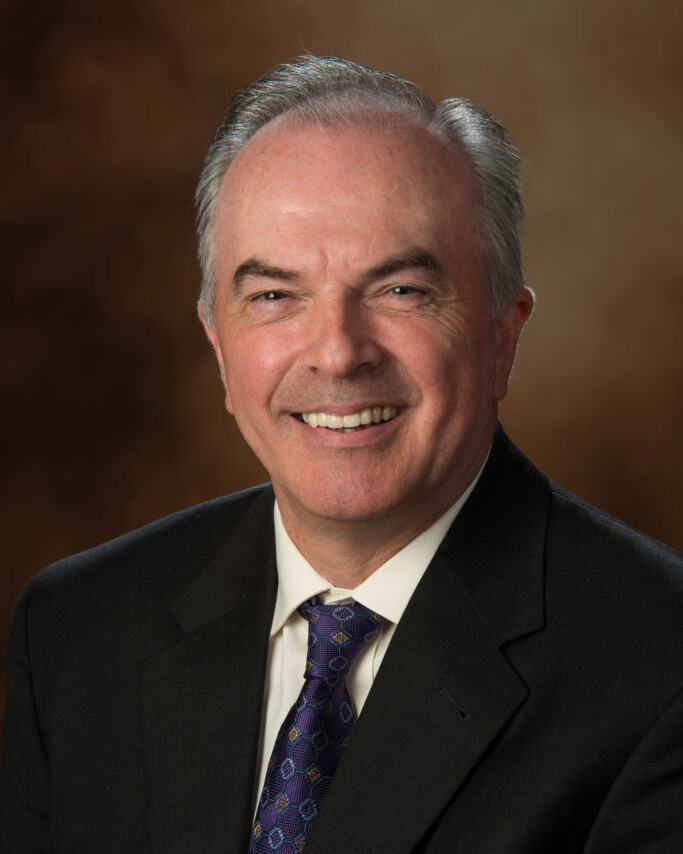
Michael McDonough
President of Raritan Valley Community College
Since June 2014, Dr. Michael J. McDonough has served as Raritan Valley Community College’s (RVCC) eighth president. The College, with an enrollment of 6,600 students, serves the residents and businesses of Somerset and Hunterdon counties, offering more than 90 associate degree and certificate programs. In addition, the College offers a dynamic set of workforce programs, a full range of professional development opportunities, innovative and customized business training, and enrichment programs for the entire community.
Read More
Prior to joining RVCC, McDonough served as provost and vice president of academic services at Monroe Community College in Rochester, NY (2011-2014); as dean of Liberal Arts at Monroe Community College (2007-2011); and as the Fred H. Gertz Professor of English at Alfred University in Alfred, NY (1987-2007).
Currently, McDonough serves as the chair of the NJCC Consortium for Workforce and Economic Development; he is the chair of the Academic Issues Committee; and is a board member for Engage NJ. He is a past chair of the College Board’s National Academic Council and a former College Board Trustee.
McDonough received his B.A. (Hons) in Film and Drama and a Post Graduate Certificate of Education from Reading University in England; an M.A. in English from Oklahoma State University; a Ph.D. in English from Pennsylvania State University; and an I.E.M. from Harvard University’s Graduate School of Education.
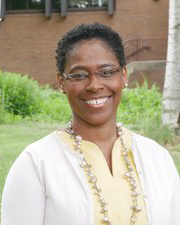
Yves Salomon-Fernández
President of Urban College of Boston
Dr. Yves Salomon-Fernández became Urban College of Boston’s President on August 7, 2023. With over 20 years of higher education experience, including a decade working at both public and private colleges in New England and the Mid-Atlantic region, Dr. Salomon-Fernández joins UCB with a proven track record that demonstrates her steadfast commitment to ensuring that all students receive a high-quality education in a welcoming environment. Previously the President of Greenfield Community College and Cumberland Community College, Dr. Salomon-Fernández most recently served as Senior Vice President for Operations Planning at Southern New Hampshire University (SNHU).
Read More
As the current Chair of Mass Humanities, Dr. Salomon-Fernández advocates for greater inclusion of historically underrepresented histories and people, and is committed to closing the digital divide in rural and urban areas. She periodically serves as a reviewer for the National Science Foundation and Johns Hopkins University Press. Dr. Salomon-Fernández is the former Chair of the American Council of Education’s Learner Success Lab Advisory Council and a member of the Job for the Future’s Policy Leadership Trust.
In March 2018, Diverse Issues in Higher Education named her one of the Top 25 Women in Higher Education. She received the American Association of Colleges and Universities (AAC&U)-Cengage Inclusion Scholarship in January 2021, recognizing her accomplishments as an inclusive leader in higher education whose efforts have reduced equity gaps, improved inclusion and belonging for minoritized students, and/or promoted diversity in hiring practices.
Dr. Salomon-Fernández emigrated with her family from Haiti and is a graduate of Boston Latin School. She received her undergraduate degree from the University of Massachusetts Boston and holds a certificate from the University of Oxford. Her master’s degree is from the London School of Economics and her PhD is from Boston College. In addition to Haitian Creole, Dr. Salomon-Fernández is fluent in French and Spanish.
Staff

Jennifer Domagal-Goldman
Executive Director,
ALL IN Campus Democracy Challenge
at Civic Nation

Stephanie King
Senior Director, Strategic Initiatives,
ALL IN Campus Democracy Challenge
at Civic Nation
The ALL IN Presidents’ Council was launched in 2020 with the charge of supporting senior leaders in higher education to foster campus communities inclusive of nonpartisan democratic engagement endeavors. The inaugural leadership of ALL IN’s Presidents’ Council included:
- Shirley Tilghman, President Emerita, Princeton University (Presidents’ Council Chair 2020-2021)
- Jon Alger, President, James Madison University
- Beverly Daniel Tatum, President Emerita, Spelman College
- Biddy Martin, President, Amherst College
- Eric Kaler, President Emertius, University of Minnesota
- Eduardo Padron, President Emertius, Miami Dade College
- Mitch Daniels, President, Purdue University
- Larry Bacow, President, Harvard University
- Ronald Daniels, President, John Hopkins University
- Valerie Smith, President, Swarthmore College
- Becky Blank, Chancellor, University of Wisconsin – Madison
- Ruth Simmons, President, Prairie View A&M University
- Janet Napolitano, President, California State System
- Gregory Williams, President, Odessa College
- L. Rafael Reif, President, Massachusetts Institute of Technology

